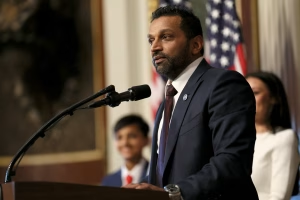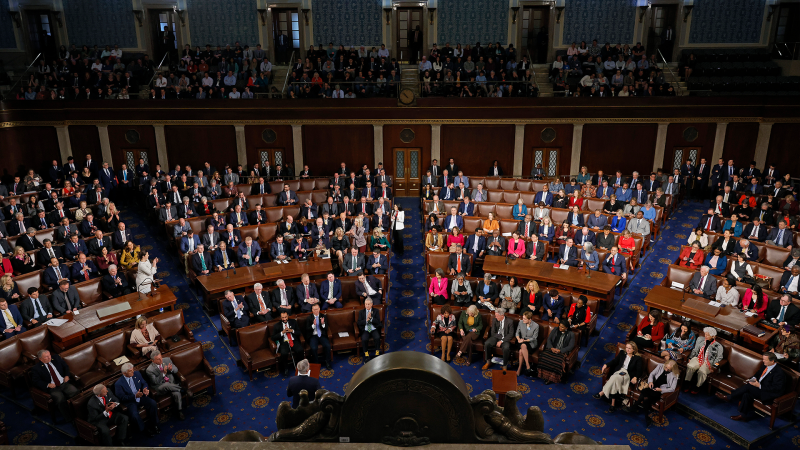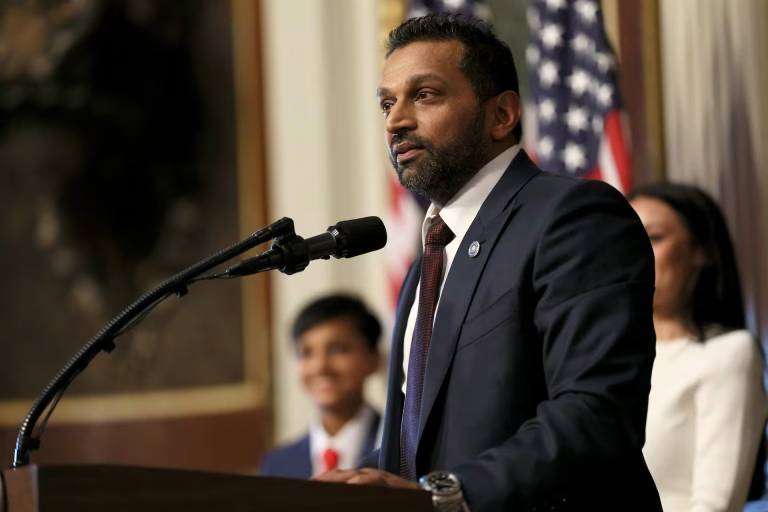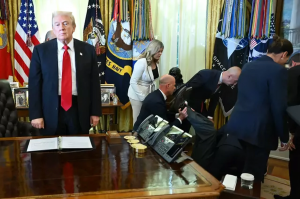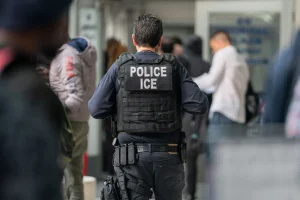Historic Shift in the Federal Courts
President Donald Trump has scored a major judicial victory this week as the U.S. Senate confirmed his first and only nominee to the Boston-based 1st U.S. Circuit Court of Appeals, a bench that had long stood as one of the last strongholds of liberal influence in the federal judiciary.
With a 52-46 party-line vote, the Senate approved Joshua Dunlap, a conservative attorney from Maine known for his work in high-profile constitutional and election law cases. His confirmation marks a turning point for a court that, until now, had no active judges appointed by a Republican president.
The Lone Liberal Circuit Tilts Right
The 1st Circuit Court of Appeals, which oversees federal cases from Maine, Massachusetts, New Hampshire, Rhode Island, and Puerto Rico, had been the only appellate court in the country entirely shaped by Democratic appointments.
For years, progressive attorneys general and liberal advocacy groups saw the New England-based court as a reliable venue for challenging Trump-era policies, ranging from environmental regulations to healthcare mandates.
That dynamic is now set to change.
Trump’s appointment of Dunlap not only breaks that streak but also cements his influence across all 13 U.S. appellate circuits, a feat that legal observers say could have profound consequences for federal policy and litigation in the coming decade.
“Joshua Dunlap will fearlessly defend our Constitution and restore fairness to a court long dominated by partisan ideology,” Trump declared when nominating him in July.
Who Is Joshua Dunlap?
A partner at Pierce Atwood LLP in Portland, Maine, Dunlap has built a career championing conservative legal causes. He earned his bachelor’s degree from Pensacola Christian College and graduated from Notre Dame Law School in 2008.
During law school, he interned with the Alliance Defending Freedom, a Christian legal advocacy organization that has fought major First Amendment and religious liberty cases before the U.S. Supreme Court.
As an attorney, Dunlap has challenged several state initiatives — including Maine’s paid family leave program, campaign finance laws, and ranked-choice voting system — arguing they violated constitutional principles.
Supporters say Dunlap’s confirmation ensures a more balanced ideological approach within a court that has often leaned heavily left. Critics, however, warn that his appointment could tilt key rulings on civil rights, voting access, and labor disputes toward conservative interpretations.
A Broader Pattern of Judicial Transformation
Dunlap’s confirmation came just days after the Senate approved another Trump nominee — Eric Tung, a Los Angeles attorney and former clerk to Supreme Court Justices Neil Gorsuch and Antonin Scalia — to the 9th U.S. Circuit Court of Appeals.
The 52–45 vote marked Trump’s first judicial appointment to the 9th Circuit during his second term and brought the number of Trump-appointed judges on that court to 10 in total, dating back to his first term.
Known as the “most liberal circuit” in America, the 9th Circuit has long covered nine western states, including California, Oregon, and Washington — all of which frequently challenge conservative federal policies. With Tung’s appointment, the court now has 16 Democratic and 13 Republican appointees, narrowing the ideological gap that once defined it.
“Eric Tung is a tough patriot who will uphold the Rule of Law in the most radical, leftist states,” Trump wrote on Truth Social earlier this year.
Republicans Celebrate, Democrats Object
Senate Majority Leader John Thune (R-SD) hailed both confirmations as victories for judicial balance.
“For far too long, these appellate courts have operated as political extensions of the Democratic Party,” Thune said. “Today, we’re restoring credibility, fairness, and respect for the Constitution.”
Democrats, however, painted a starkly different picture.
“These nominees were chosen for ideology, not impartiality,” warned Senator Elizabeth Warren (D-MA). “The First Circuit’s long tradition of independence is being replaced with political loyalty.”
Despite Democratic objections, the votes underscored the GOP’s ability to maintain a steady grip on judicial confirmations amid ongoing gridlock in Washington — particularly as the federal government shutdown stretches into its sixth week.
What It Means Going Forward
The appointment of Dunlap completes a symbolic victory for Trump’s long-running effort to reshape the federal judiciary — an effort that began during his first term and continues to redefine American law from the appellate level down.
Legal scholars suggest his presence could affect rulings on issues like state election integrity, environmental regulations, and labor disputes.
“Every appellate seat matters,” said constitutional law expert Dr. Andrea Morris. “By placing conservative judges in historically liberal circuits, Trump is ensuring that his judicial philosophy endures far beyond his presidency.”
With these confirmations, Trump has now appointed judges to every federal circuit court, effectively ensuring that his imprint will influence U.S. jurisprudence for generations.

Sarah Mitchell is a bestselling novelist recognized for her insightful and emotionally resonant stories that explore the complexities of human relationships. Originally from Denver, Colorado, Sarah grew up in a family of teachers who nurtured her curiosity and love for storytelling. She studied psychology at Stanford University, where she became fascinated by the intricacies of human behavior—an interest that would later shape her writing career. Sarah’s novels are praised for their nuanced characters, intricate plots, and ability to capture the subtle tensions that define love, friendship, and family ties. Her breakthrough novel, The Spaces Between Us, became an instant bestseller, lauded for its honest portrayal of strained family relationships and the fragile bonds that hold people together. Since then, she has published several works that continue to captivate audiences around the world. Outside of her writing career, Sarah is passionate about mental health advocacy and often partners with organizations to promote awareness and support for those struggling with emotional well-being. Her personal life is quieter—she enjoys hiking in the Colorado mountains, practicing yoga, and spending time with close friends. With each new book, Sarah Mitchell cements her reputation as a writer who illuminates the beauty and struggles of human connection.


